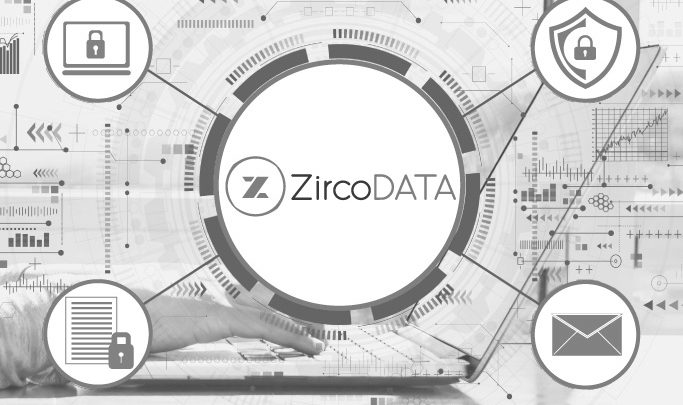
How To Prevent Data Breach: Foolproofing Data Security for Small Businesses
Regardless of the size of your business, you are at risk of experiencing a data breach. Cyberattacks often target small businesses despite the perception that they are too small to be targeted.
Rather than seeking the biggest score, criminals seek the path of least resistance. Businesses often open that path by not taking proper precautions and not believing that they are targets.
Due to their limited resources, small businesses are more vulnerable to a breach. In the aftermath of a small business data breach, you are left with fewer options because margins are tight, cash flow is reduced, and there is fewer specially trained staff available.
In order to protect your business from attackers, there are some things you can do. Let’s start by understanding how it happens and then move to figure out how companies can prevent data breaches and improve data security for small businesses.
How Does a Small Business Data Breach Happen?
Data breaches may sound scary, but they are vague terms.
A data breach occurs when secure information is moved to an untrusted environment. There could be an intentional or unintentional motive. An employee or for-profit hacker may be responsible for the leak.
It is important to be vigilant and employ a variety of strategies for data security for small businesses, as a small business data breach can occur in a variety of ways.
A data breach can occur in the following ways:
- A coworker’s computer, for example, might be accessed by an employee without authorization. It is unintentional access, and no information is shared. Due to the fact that the data was viewed by an unauthorized individual, it is considered to have been breached.
- Data is accessed and/or shared with the intent to harm individuals and/or companies. An ill-intent employee intends to misuse the data despite legitimate authorization.
- A laptop or external hard drive containing sensitive information can go missing at any time.
- Networks and individuals are attacked using a variety of attack vectors by hackers to gather information.
What is Targeted in Small Business Data Breaches?
Innocent mistakes may result in a data breach, but unauthorized access, such as stealing private information or corporate data and selling it for a profit, can have serious consequences.
- Data breaches are caused by a lack of or a theft of credentials, but the vast majority are caused by weak credentials. Most people reuse passwords; cybercriminals gain access to PII or financial information through email, websites, bank accounts, and other sources.
- When cybercriminals are able to get access to your personal information, which can be compromised by sophisticated phishing attacks, they can access things like your bank account and online accounts.
- Computers are vulnerable to malware attacks that negate normal authentication steps.
- When a card is swiped at a gas pump or ATM, card skimmers steal data from it.
- It is possible for malicious criminals to gain access to your network and data even though you do everything you can to keep them secure. They may use third-party vendors to gain access to your system.
- Employees can easily download malware-laden apps onto unsecured devices when they bring their own devices into the workplace.
How Overlooking Data Security for Small Businesses Costs?
PII (personally identifiable information) is typically targeted by attackers who can sell it to make a profit or harm individuals or organizations. To uncover vulnerabilities and identify individuals at risk, attackers become increasingly sophisticated and meticulous in their planning.
Access to data can have devastating effects once they gain control of it. Data breaches can damage an organization not only financially but also in terms of reputational damage.
Foreign agencies could gain access to confidential and highly sensitive information, including military operations, details of the national infrastructure, and political dealings, resulting in threats to the government and the people.
An individual who suffers a breach could lose their personal data, such as banking information, health information, or their Social Security number. The information can be used by cybercriminals to access the individual’s social media accounts, ruin their credit rating, spend money on their credit cards, and even create a new identity.
How Can Small Business Data Breaches be Prevented?
To prevent small business data breaches, organizations must have the right, up-to-date security tools, and technologies. Data breach prevention strategies must be implemented and followed by employees and organizations. Such as:
- To prevent cybercriminals from stealing your credentials, use strong passwords. Password managers can also be useful.
- Besides entering their username and password, MFA multifactor authentication requires users to prove their identity. This prevents hackers from gaining unauthorized access to accounts and corporate systems even if they steal the password.
- The software should always be updated and patched whenever necessary, and automatic updates should be enabled whenever possible.
- A secure Uniform Resource Locator (URL) or web address should be opened by users. Typically, these URLs begin with HTTPS (Hypertext Transfer Protocol Secure).
- It is important for organizations to provide their employees with regular training and top-up sessions to ensure they are always aware of the latest threats.
Reduce Your Small Business Data Breach Risk Factor with ZircoDATA
Cybercriminals are becoming more sophisticated, and cyberattacks are becoming more prevalent, making it imperative that businesses have a response strategy on how to prevent a data breach or how companies can prevent data breaches, rising both internally and externally.
By guiding you through the process of accurately reporting a breach, ZircoDATA’s Data Breach Reporting service reduces the risk to your company. It provides proof of compliance in the event of litigation and a defensible position when a breach occurs.

Recent Comments